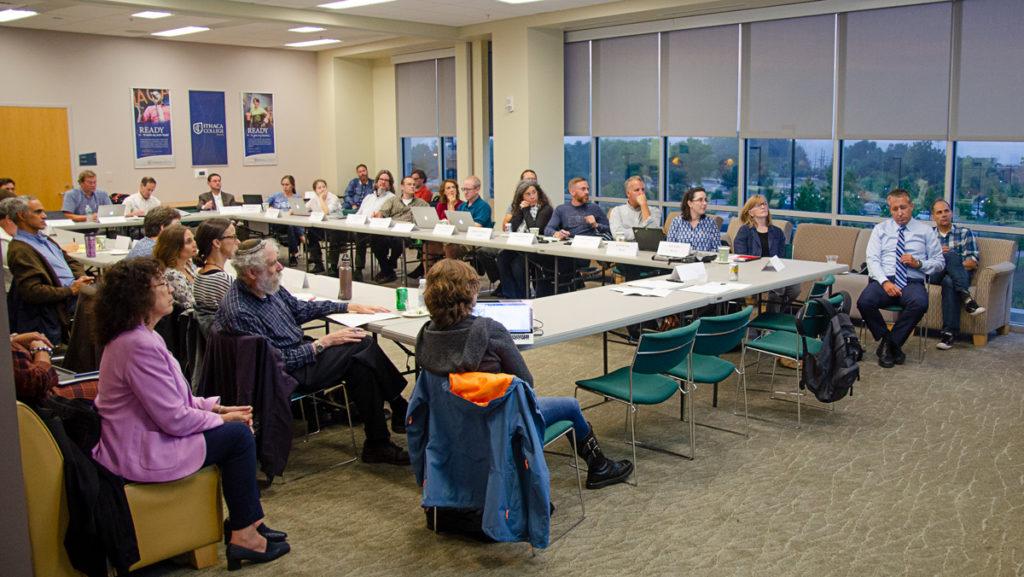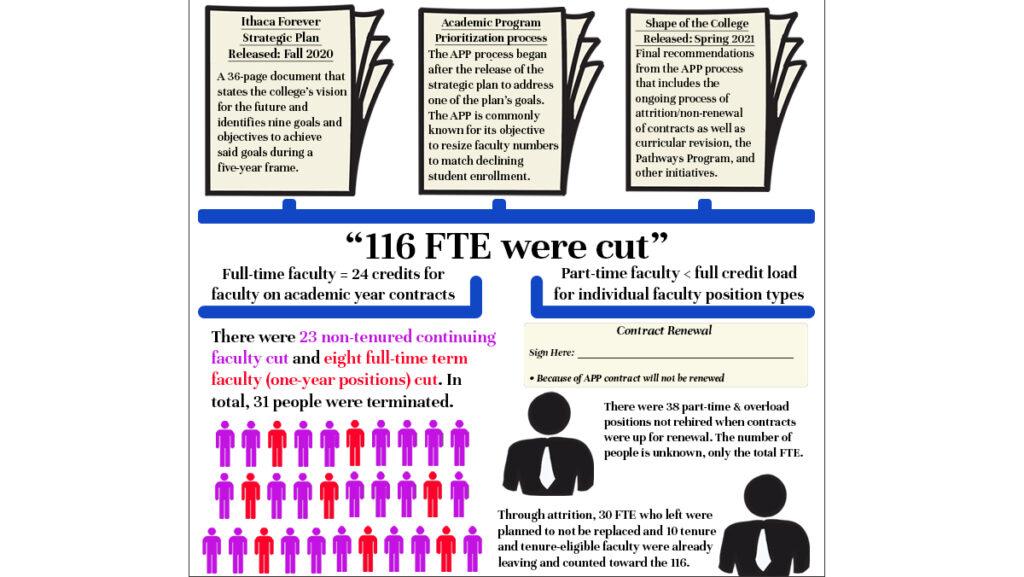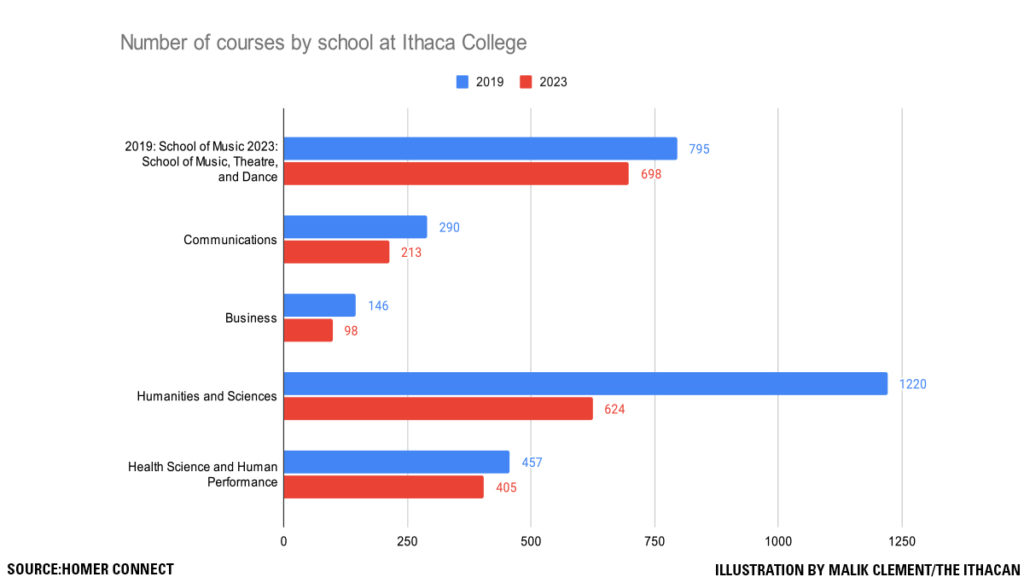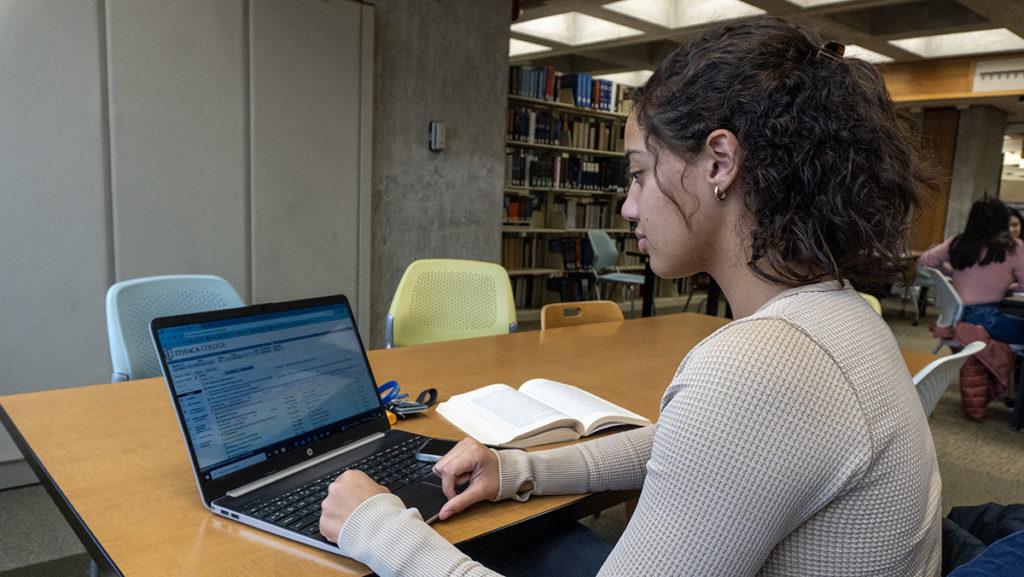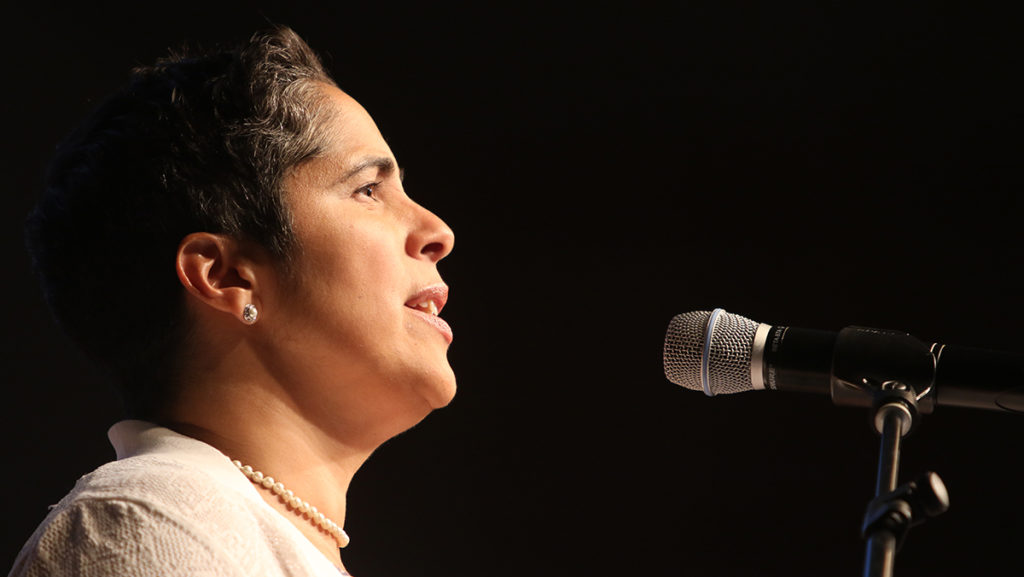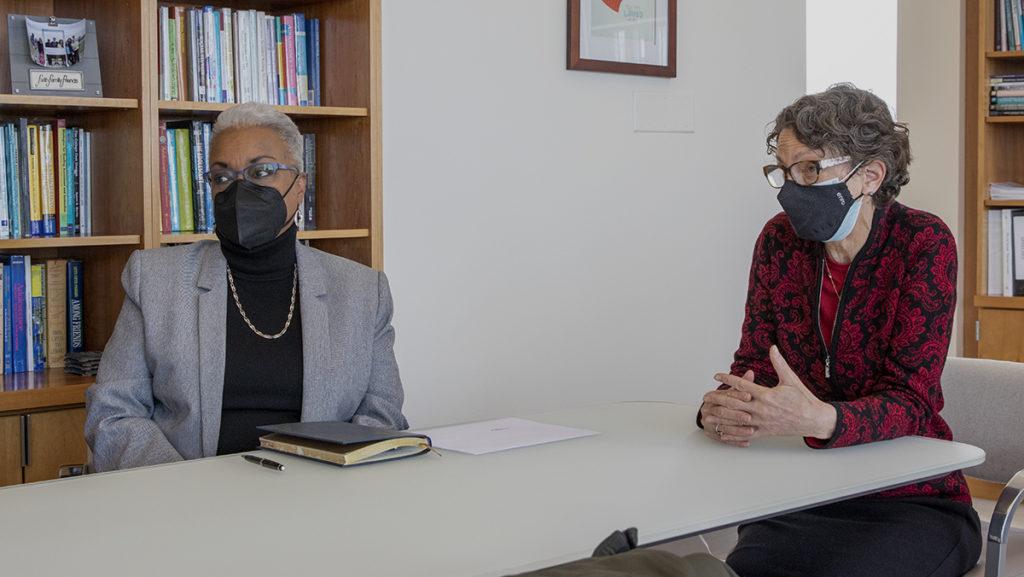The Ithaca College Faculty Council discussed a vote of no confidence against the administration during its March 2 meeting in response to the Academic Program Prioritization (APP) faculty and program cuts.
The council planned to go into closed session to discuss the APP with President Shirley M. Collado and La Jerne Cornish, provost and senior vice president for academic affairs. Collado and Cornish approved the Academic Program Prioritization Implementation Committee’s (APPIC) recommendations for faculty and program cuts Feb. 24.
The council first discussed the APP process during its Oct. 6 meeting and has since voiced opposition to the planned cuts. The council also wanted to discuss an opinion piece about the APP that Collado and Cornish wrote for Inside Higher Ed.
Closed session meetings are limited to Faculty Council members, but the content of the session is not confidential.
“Faculty Council invited the president and provost to attend the meeting to have a conversation with faculty, and the president and provost agreed that if faculty wanted to have that conversation, it would be with faculty alone,” Dave Maley, director of public relations, said via email.
Chrissy Guest, associate professor in the Department of Media Arts, Sciences and Studies and member of the Faculty Council Executive Committee (FCEC), said Collado and Cornish would only agree to attend the meeting and answer questions if the discussion was held in closed session.
“Please be aware that this discussion will take place in a closed session — meaning only Council members will be present — because the President and the Provost would agree to take our questions only under these conditions,” Guest said via email. “Although this was not FCEC’s desire (we felt that both The Ithacan and faculty guests should be present), we accepted the conditions with the understanding that this is not executive session.”
During the closed session, council members asked Collado and Cornish about their intentions with their Inside Higher Ed piece, whether they are concerned that many faculty members expressed disapproval of the APP, how they will restore relationships with alumni donors and what the future of the college looks like.
Several questions were centered around shared governance, according to the Faculty Council Meeting Report written by Claire Gleitman, professor and women’s and gender studies coordinator in the Department of English and secretary of the council. One council member asked Collado and Cornish what shared governance means to them.
“The President said that she sees shared governance as creating space for meaningful input, providing channels for constructive feedback and being clear about where the final locus of authority resides for different decisions,” the report states.
A council member also asked, “What is on the other side of this when the college’s prospects seem so bleak?” Collado said the Senior Leadership Team (SLT) is exploring fundraising opportunities.
“She also said, regarding IC’s future, that there will likely to be more pain to come, specifically for staff,” the meeting report states.
Following the closed session, Jason Harrington, associate professor in the Department of Media Arts, Sciences and Studies, said he appreciated the discussion that other council members facilitated during the session.
“My colleagues on council who asked some amazing questions that I thought, in many cases, were really brave,” Harrington said. “And for that, I thought we got further than in many other meetings.”
Fatima Hajjat, assistant professor in the Department of Marketing, then made a motion to go into executive session. The motion was approved, and the rest of the meeting was held in executive session, meaning only Faculty Council members were allowed in the meeting. Unlike closed sessions, everything that happens during executive sessions is confidential.
According to the meeting report, the council agreed to report what happened during the executive session. The report states that the council discussed a vote of no confidence against the administration during the executive session as well as other possible actions that they could take to show faculty concerns.
No confidence votes are held when groups within the college community believe that the president is ineffective at running the college. They are symbolic votes because it is the Ithaca College Board of Trustees that has the power to remove a president from their position.
The Student Governance Council passed the No Confidence in Shape of the College Recommendation resolution during its Feb. 22 meeting. The resolution recommends stopping the implementation of the APP in order to incorporate more input from students, faculty and staff. Students held a no confidence vote for former president Tom Rochon after students held protests against racism on campus, and the college community believed that Rochon was unfit to change the campus climate and lead the college.
Due to the late hour, the council voted to table the discussion until March 17, according to the report. The report also stated that the council will reach out to constituents to see if faculty are in favor of holding a vote of no confidence or if they would rather take other steps.
At the beginning of the meeting, Christina Moylan, director of public health emergency preparedness, answered questions from faculty about protocols for COVID-19 exposures in classrooms. Chris McNamara, clinical associate professor and clinic director in the Department of Physical Therapy and chair of the Faculty Council, asked questions that were submitted by faculty members. One question asked whether or not professors have to quarantine if one of their in-person students tests positive for the virus.
Moylan explained that most professors would not have to quarantine if they were following the COVID-19 guidelines, which includes wearing a mask and social distancing. She said each case is different, so there is not a standard response to a COVID-19 case in the classroom.
Moylan also discussed the college’s plan for Fall 2021. Moylan said that the college is expected to be fully open for Fall 2021 and that she does not anticipate the semester to be greatly impacted by the COVID-19 pandemic. She said she believes the pandemic will be more controlled due to people being vaccinated. She also said she thinks the college will be more prepared to operate safely amid the pandemic because of the experience gained during Spring 2021.
“My assumption is that some combination of those things is at least feeding into the part of the question about ‘Is COVID going to interrupt our fall semester again in the same way it did last year?’ and I think, based on what we have right now, we’re hopeful that the answer to that is no,” Moylan said. “But, as all of you know, things can change with COVID.”


